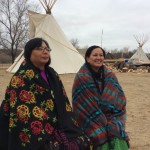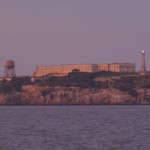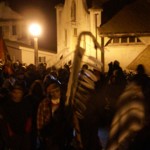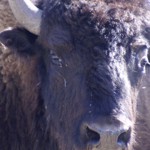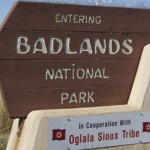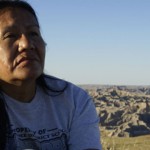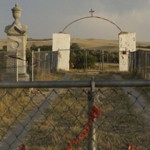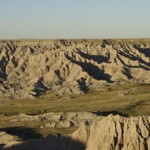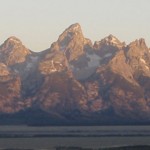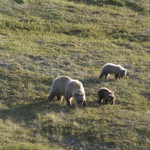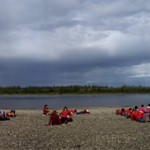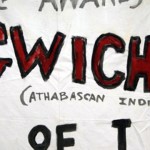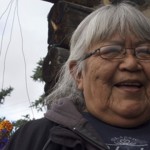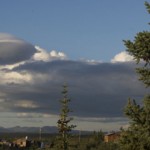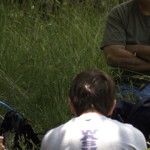Denali National Park: Self-reflection #1 – New conversations

I spent two weeks off from my project and created a time and space in the quiet backcountry of Denali and Grand Teton National Park to reflect my experiences with Gwich’in nation. In this process, I had many new conversations with people from different backgrounds and gained new perspectives. As a result, new ideas and a direction of the project have been born.
When I think about “new conversations,” the one particularly stands out the most because it made me think, “How do I talk to people who are up for drilling oil in the Arctic National Wildlife Refuge?”
I am used to speaking to my friends and fans who support my project. It automatically guarantees that I don’t have to defend my perspectives. So, when I had a conversation with a person who believes in drilling into Arctic National Wildlife Refuge, I was challenged but in a very good and powerful way. The conversation was somewhat intimidating because at the beginning he was very angry and told me that he would not support my project. He made a really good point that I couldn’t have made it to Arctic Village and met Gwich’in nation to do my project if there weren’t oil. That is SO TRUE! I, as a human being, can not live alone separating myself from our society. Because our society is heavily dependent on oil for our transportation, energy and pretty much everything surrounds us (i.e. plastic – it is made of oil), I can not deny my dependence on oil. It is unrealistic for me to say, “No oil at all! So, don’t drill anywhere!” But I can consume less if I make conscious choices in my everyday life and take actions to change our energy policies and support socially and environmentally responsible companies. For example, I have been flying between major cities only with Alaska/Horizon Airlines for my project since they have the strongest environmental programs in the industry. The last flight I took was from Seattle to Idaho Falls and I was on a 76-seat Q400 aircraft, which is 30-40% more fuel-efficient than a comparable jet. The conversation made me more eager to be a part of our social movement towards reducing our dependence on oil by creating more clean renewable energy and more fuel efficient technology. We owe the future generation to do this so that they also have an access to the oil like I do now.
But the true challenge was not talking about our energy policy. It was more about how to communicate Gwich’in people’s perspective on this issue clearly so that he could gain a new perspective on this issue. I decided to just listen to what he had to say. As I listened to him, I remembered the Gwich’in’s elders words: “Do it in a good way and no compromise.” I also paid attention to what we have in common. He talked and I talked. He started to understand that our conversation was not about the oil, not about the caribou and not about the Arctic National Wildlife Refuge. REALLY, NOT AT ALL! It was about seeing the issue by wearing a different cultural lens and how wearing a lens of Gwich’in nation all the sudden turns the issue into human rights issue. I also found out that he and I share a value in Buddhism and we practice meditation. That was when I was able to explain the issue from the Buddhist perspective – how we all practice to live our lives by cultivating lovingkindness and compassion to all living and non-living things. If we let oil companies drill into 1002 area as the politicians call, the calving ground of the Porcupine Caribou Herd as the environmentalists call, or “the sacred place where life begins” as the Gwich’in nation call in the Arctic National Wildlife Refuge, it will show how humanity fails to practice lovingkindness and being compassionate toward everything.
He was not mad at me anymore at the end. I admired him for his ability to just listen to me when I wanted to be heard. He understood where I was coming from. Later, he asked me, “What do you want me to do?” I didn’t give him all the answers. I wanted him to contemplate on his own.
This new conversation inspired me to not afraid of speaking to people who are not like me. It might be too ambitious to say that I want people who want to drill in the Arctic Wildlife Refuge to be an ally for Gwich’in people, but at least, I feel that it is my responsibility to communicate where Gwich’in people stand as a woman who learned their way. I need to have more practice. And maybe it is good for you, too. So, next time, if you meet someone who says one of the Sarah Palin’s famous lines, “Drill baby drill!,” listen to them and talk to them. But remember, “Do it in a good way and no compromise.” – I think it means to communicate politely, kindly and respectfully without compromising your right to speak up for yourself. It might be intimidating if the person is angry. It might be very uncomfortable. But Gwich’in people have been doing this since 1987. They have been educating many people including those who are against them. They gave me a strength and wisdom to speak up. I thought, “If they can do it, I can too.” – and if I can do it, you can too.
[slide]
